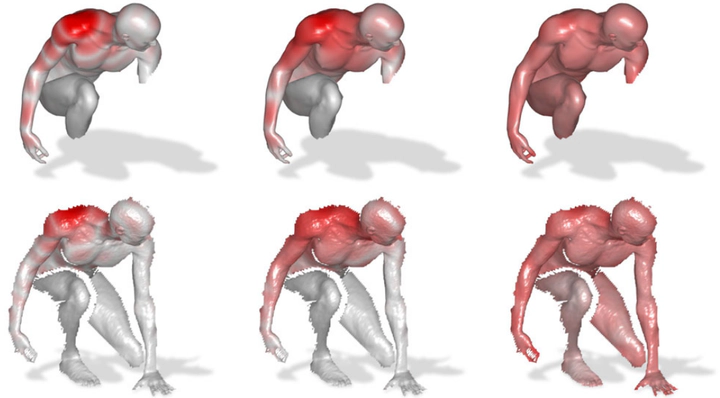
Abstract
The Average Mixing Kernel Signature is a novel spectral signature for points on non-rigid three-dimensional shapes. It is based on a quantum exploration process of the shape surface, where the average transition probabilities between the points of the shape are summarised in the finite-time average mixing kernel. A band-filtered spectral analysis of this kernel then yields the AMKS. Crucially, we show that opting for a finite time-evolution allows the signature to account for a mixing of the Laplacian eigenspaces, similar to what is observed in the presence of noise, explaining the increased noise robustness of this signature when compared to alternative signatures. We perform an extensive experimental analysis of the AMKS under a wide range of problem scenarios, evaluating the performance of our descriptor under different sources of noise (vertex jitter and topological), shape representations (mesh and point clouds), as well as when only a partial view of the shape is available. Our experiments show that the AMKS consistently outperforms two of the most widely used spectral signatures, the Heat Kernel Signature and the Wave Kernel Signature, and suggest that the AMKS should be the signature of choice for various compute vision problems, including as input of deep convolutional architectures for shape analysis.